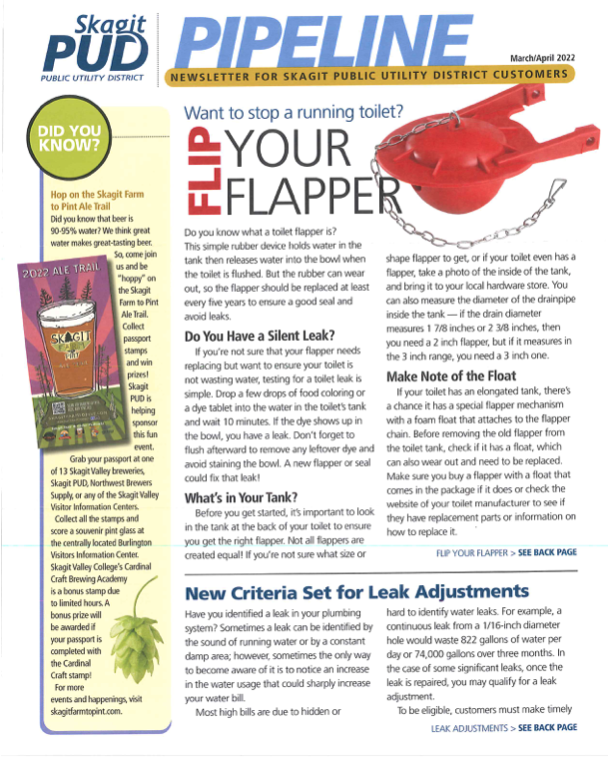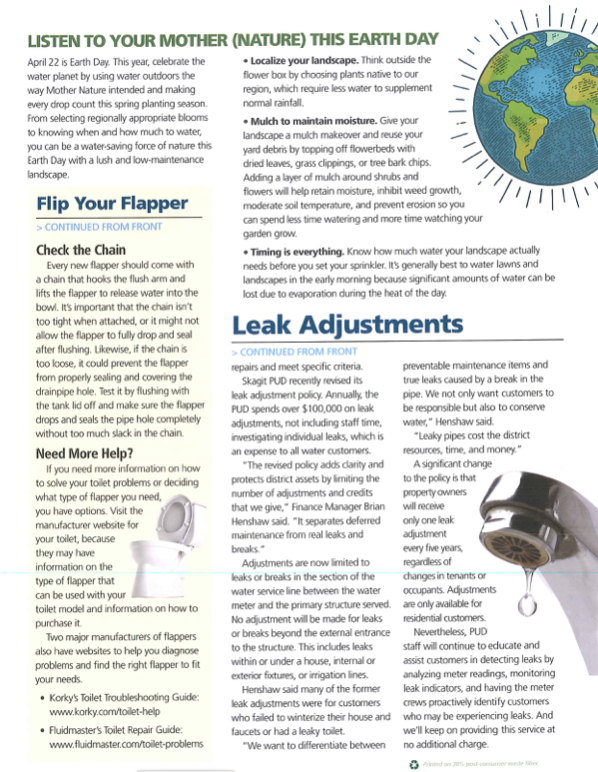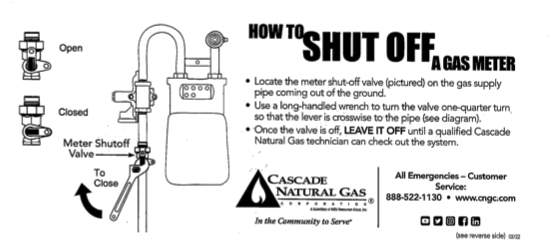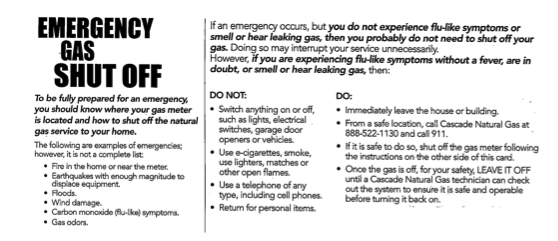Property Maintenance
Whenever you have an issue at your property that requires maintenance, please submit a request through Property Meld by logging in to your account. All maintenance requests must be submitted in writing.
Outlined below are the different categories of maintenance issues that you can use as a reference when submitting maintenance requests. Each category will be handled differently. It is vitally important that you follow specific instructions depending on the category. For questions or clarifications, please send an email to bellingham@purepm.co.
Please be aware that maintenance of scattered-site single-family homes is not like maintenance of multi-family properties. We hire independent contractors that are licensed and insured to work on all properties and scheduled based on the availability of the contractors.
Outlined below are the different categories of maintenance issues that you can use as a reference when submitting maintenance requests. Each category will be handled differently. It is vitally important that you follow specific instructions depending on the category. For questions, please send an email to bellingham@purepm.co.
Troubleshooting Common Maintenance Issues
-
No power:
Check your fuse box for tripped breaker switch. If the breakers are all in their place, then it's likely an appliance that has been overworked and needs a moment to cool off before you can turn them back on again. Try unplugging all the appliances from its sockets inside or outside of your house, wait about five minutes, plug one appliance into the socket at a time until you find which one is causing this problem! -
Not hot water:
To determine the cause of your hot water not working, first check to see if there is a leak in your tank. If you find such a leak, shut off the power and call for professional assistance to fix it immediately so that it does not get worse. Next, take note of any tripped breakers or blown fuses on your fuse box; these may be responsible for stopping the flow from reaching all parts of your house- especially those further away like bathrooms or kitchens down hallways! Finally, make sure to inspect around areas where gas appliances are installed (such as pilot lights) because this could also stop cold water from flowing through pipes too hard up against them due to an increase in heat generated by natural gas heating units nearby -
Garbage Disposal not working:
Safety first - never put your hands beneath the disposal blades, and always turn off the unit when clearing it out. Never place chicken bones or other hard-to-dispose of items down here either! The disposal is a key tool in cooking, but it can also be dangerous if we're not careful. To keep your hands safe and to avoid the uncomfortable smell of rotten food coming from your sink drain, reset the safety switch underneath the bottom of the disposal unit in our kitchen's cabinet! Check for blockage by looking closely at what goes down into that part around blades before putting any utensils or fingers near them--though never put these items down there: chicken bones, onion peels (a little bit okay!), potato skins (again with just a few), corn husks. Turn off as soon as you finish using this important appliance; don't forget about those pesky leftovers sitting on top too! -
Clogged or Slow Sink:
Pour a pot of boiling water down the drain, pour in ½ cup baking soda. Let it sit for few minutes to loosen hair and soap build-up before pouring in 1cup white vinegar mixed with hot water. After letting that mixture sit 5-10 minutes, flush one more time with some boiling water -
Clogged Toilet:
You don't have to be a plumber to unclog your toilet! The first thing you'll want is some rubber gloves and a plunger. Plungers are typically made of plastic with the end shaped like an acorn, which will allow it to fit snugly into any drain hole on either side of the sink or tub. Grab that plunger tight onto one edge and start plunging from top-down short motions with quick pushes as if each time were going down for gold at Fort Knox. You can use short strokes back up again too but make sure not do so vigorously because this could cause air pockets below the surface leading water droplets out through another vent (which would lead us right back around). -
Washing Machine not working properly or at all:
When you're ready to do a load of laundry, it's easy and important to check whether all the necessary appliances are turned on before. Check if your washing machine taps are turned on at the wall (this will help fill up water for your clothes to get washed) or that its lid is closing properly so no leaks occur during use - these things could lead them affect how efficiently they wash! Make sure when using an appliance like this that either its settings knob points directly onto what setting you want, such as hot water-or cold-, otherwise there might be some problems with overloading due too high temperatures or not enough energy being used because something was off by just one degree. If any issues arise halfway through a cycle, try redistributing Don't overwhelm your washing machine! Use only laundry detergent. Never use dishwashing liquid because it can cause clogs and excessive wear on the appliance. -
Dryer not working:
Dryer fires are a major concern for homeowners. Cleaning the filter out of your dryer is important to avoid these tragic incidents happening at home, and you should never ignore any warning signs or alarms that occur while drying clothes. -
Dryer Duct:
Dryer ducts are important to keep clean for the safety of your home. Lint and other debris often accumulate in it, which is a fire hazard! To prevent this from happening to you, make sure that once every six months or so (depending on how much laundry you do) take off the lint trap and get rid of all clogging materials by shaking them out over garbage bags before putting back into place with care. If these measures still don't work, then submit an emergency request as soon as possible because if not taken care of quick enough can cause serious problems like fires breaking out due to build up dust particles catching onto heat sources such as light bulbs. -
Fridge not cooling or freezing:
The temperature in your kitchen may be colder than you think! Check the thermostat to make sure it hasn't been turned way down by mistake. Clear out any boxes of ice cream or frozen food packages that are blocking vents on the freezer compartment under or behind fridge, these vents must stay clear for cold air circulate and keep things cool enough within the appliance. Vacuum those coils as well-a clean refrigerator will always work better! Poor cooling can be caused by clogged coils. Cleaning the seals around the refrigerator doors will keep cool air from escaping and promote better circulation of cold air to reduce temperature increases inside your fridge. -
Outlet not working:
Reset the GFCI outlets around your house and press all their reset buttons, if none of them work you should submit a maintenance request. -
Heating and air conditioning:
Change your air filter regularly to keep it from getting so dirty and making the conditions in your home worse. Make sure you install a new one properly before you change out any old filters! If there’s still an issue with heat or air, submit a maintenance request for approval of help fixing the problem. -
Garage Remote doesn’t work:
If the remote stops working, make sure to change the battery first. If that doesn't work, submit an online maintenance request.
-
Maintaining Smoke Alarms and CO2 Detectors:
When you hear a beeping from your detector, it’s likely that a battery needs to be changed. Please change the battery as soon as possible! This is particularly important because this can mean saving lives in case of an emergency such as fire or carbon monoxide leak. If these alarms sound off, please get out immediately and call 911--the sooner they know about any potential danger, the quicker help will arrive on site for everyone's safety -
Pest Control:
Pests can be an annoyance in your home, and for those with allergies or asthma it may even become a health hazard. Luckily there are ways to keep them at bay! If you notice any of these critters inside the house, prevention products such as traps will help get rid of pests without harmful chemicals that could worsen respiratory conditions like asthma. For some tips on preventing pest infestations from happening again: -Keep indoor spaces tidy by removing clutter where bugs might hide -Make sure garbage cans have tight lids so they don't attract mice -
Door, Window and Locks:
If there is condensation on the inside of your window, you should wipe it down and install dehumidifiers to reduce humidity. When a window becomes difficult to open, there might be debris or foreign objects in the track. The first step is always checking for these things that could cause an obstruction! When windows are hard to use and won't stay up on their own it's important not only check for any obvious obstructions such as dirt or leaves but also check the tracks where something may have gotten stuck during installation. -
Flip Your Flapper


-
Shut Off Gas Meter


Maintenance Form
Simply log in to Property Meld to submit a maintenance request, and we will address your maintenance issue. For after-hours emergencies that require immediate attention, please call 855-420-7873.
If this is a life threatening emergency call 911 immediately.
Important
Repair or damage caused by your negligence or misuse is your responsibility. In such cases, repairs will be made, but you will be charged for the cost of the labor and materials. Damages or plumbing stoppages caused by your negligence or misuse will be paid by you.









